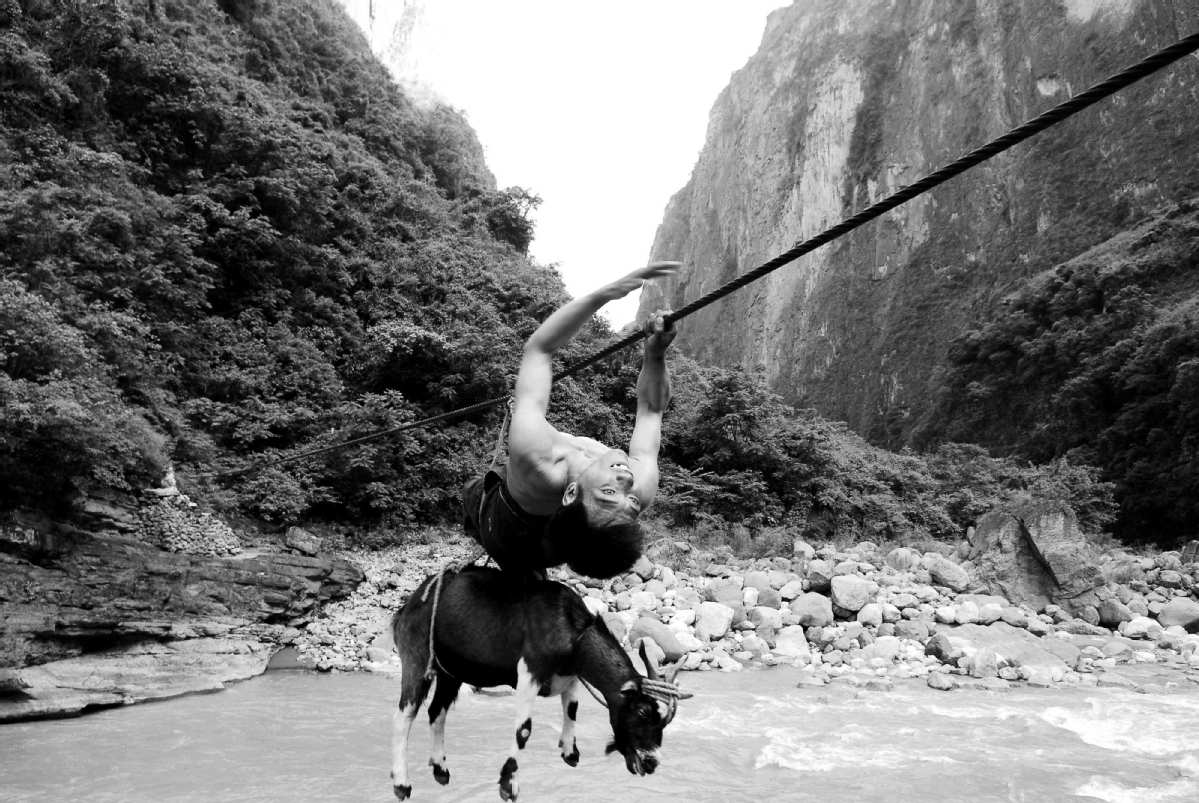Villagers cut rope to the past
 0 Comment(s)
0 Comment(s) Print
Print E-mail China Daily, July 30, 2020
E-mail China Daily, July 30, 2020

Before moving into his new house, Choisa Tsegon went to the banks of the Xixi River on June 28 to look at a cable spanning a waterway in the mountains of Sichuan province.
His remote village in Butuo county, Liangshan Yi autonomous prefecture, is enclosed by steep mountains on three sides and the river on the other.
The 41-year-old from the Yi ethnic group stood and contemplated the important role the cable had played in the lives of all the villagers.
There were only two ways to get to the outside world. Residents could climb up and down a mountain path to reach the nearest village with a paved road, or they could pull themselves across the cable to get quicker access to it.
Many chose the faster path, sometimes lashing livestock and possessions to their bodies before they pulled themselves along the cable.
The remoteness of the village hindered its development. Choisa first tasted rice when he was more than 10 years old. The clothes he wore were his father's hand-me-downs, and the soles of his shoes were made from recycled tires.
A village primary school was opened in 2005 so Choisa's two daughters and son could attend lessons. Even though he upgraded the material of the family home from thatch to adobe, it remained a humble dwelling.
Last month, construction of a 3.8-kilometer paved mountain road to the village was completed. Choisa can now travel directly to the county seat by bus in two hours.
The local government has also built 33 two-story villas, each with a floor space of 80 square meters, for the villagers to live in. Choisa has already moved most of his family belongings into his new home.
The mountain road also means one of his daughters can attend a junior high school in a nearby town.
4d43d2b6-07f0-4a95-be4e-1fcecb05e23d.jpeg)




Go to Forum >>0 Comment(s)